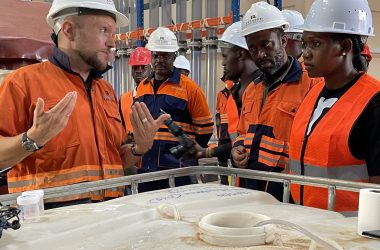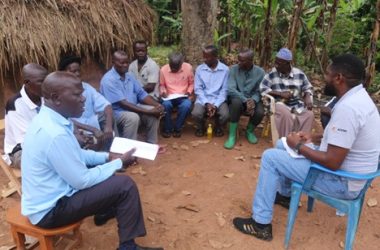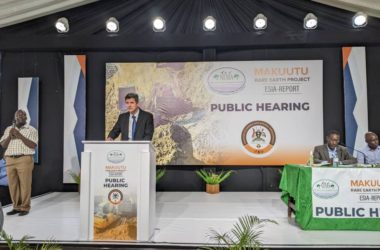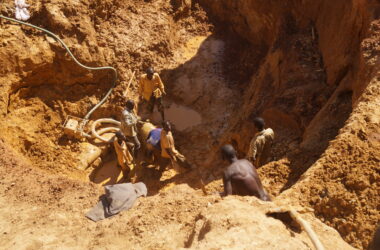In June 2018, Cabinet passed the local content policy for the oil and gas industry of Uganda. The petroleum resources in Uganda are now estimated at over 6.5 billion barrels of oil, of which 1.4 billion – 1.7billion barrels of these resources is estimated to be recoverable. Expectations are to have Uganda’s “first oil” in 2020. The local content policy was passed to enable national participation in the development of the oil and gas sector. But, beyond the legal framework, there is need for the Government to set achievable targets, and have coordination between the different stakeholders.
On 30th June 2018, the Petroleum Authority of Uganda (PAU) announced the release of the National Supplier’s Database 2018 (PAU-NSD 2018). Qualification for the NSD is a legal requirement for all entities that are interested in supplying good and services in the oil and gas sector. And although the NSD does not guarantee award of contracts to the Ugandan entities, it provides for national participation, a transparent supply chain and fair competition in the procurement process.
The NSD comprises of 1712 entities which were verified and passed for qualification to provide goods and services in the development of the oil and gas sector. 2558 applications had been received by closing date of 31st March 2018, and 1594 of these were companies registered in Uganda; the other 964 were from 57 countries around the world including France, Netherlands, USA, UK, Tanzania, Kenya, Egypt, South Africa, Canada, China, Germany, Denmark, among others.
Currently, there are 1218 Ugandan entities and 494 foreign entities on the NSD which categorizes the services that are to be offered by the different entities into 20 categories. The graph below shows the number of Ugandan entities versus foreign ones in each of these service types on the current NSD.

According to the National Content Policy for the Petroleum Subsector in Uganda, 2017; a “Ugandan company” for purposes of section 125 of the Upstream Act and Upstream National Content Regulations means a company incorporated under the Companies Act, 2012 and- has at least 50% of Ugandan citizens at managerial level; provides value addition to Uganda; uses available local raw materials; Employs at least 70% Ugandans; and is approved by the Petroleum Authority of Uganda.
The letters represent the different service types which are; A – Agriculture, Forestry & Fishing, B – Mining & Quarrying, C – Manufacturing, D – Electricity, gas, steam and air conditioning supply, E- Water supply, sewerage, waste management & remediation activities, F – Construction, G – Wholesale & retail trade; repair of motor vehicles & motorcycles, H – Transportation & storage, I – Accommodation & food service activities, J – Information & Communication, K – Financial & insurance activities, L – Real estate activities, M – Professional, scientific & technical activities, N – Administrative & support service activities, O – Public administration & defense; compulsory social security, P – Education, Q – Human health & social work activities, R – Arts, entertainment & recreation, S – Other service activities and U – Activities of extraterritorial organizations and bodies.
As represented in the bar graph, the only service categories that had more foreign entities qualify than Ugandan entities are B – Mining and Quarrying and C – Manufacturing. This is attributed to lack of capacity – both financial and technical of most Ugandan entities to provide these services.
According to the Authority, an estimated $20 Billion will be invested into development of the upstream, refinery, the 1445km long East African Crude Oil Pipeline and support infrastructure which includes an airport, industrial park and roads. These mainly fall into the aforementioned service types. This calls for the government to give support to the Ugandan entities for them to fairly compete for these contracts and have part of this massive amount of money retained in the country.
In the recently launched Second Annual Petroleum Development Scorecard by Africa Centre for Energy and Mineral Policy (ACEMP) in partnership with the National Planning Authority (NPA), national content development and participation scored 50%. The score was attributed to a number of factors such as the legal and policy framework on national content scored at 83.3%, national content programs for oil and gas companies scored at 75%, the procurement of local goods and services scored at 16.7%, database for skills and service provision scored at 50%, training and skilling of Ugandans scored at 41.7%, employment in the oil and gas sector scored at 50.5% and capacity building of SMEs scored at 40%.
What can the government do to support Ugandan Entities in these two categories?
The government should facilitate the capacity building, skills development and technology transfer from foreign entities to Ugandan individuals and companies for them to be able to contribute more to these categories. CNOOC and Total Uganda in partnership with private institutions are already training and skilling Ugandan to be certified welders who will be employed in the development of the East African Crude Oil Pipeline where thousands of welders will be needed. There is need to diversify into different skills as the developments are going on so that there is increased national participation throughout the whole industry.
The government should support the Association of Uganda Oil and Gas Service Providers (AUGOS) which has just over 100 members to be able to absorb the new suppliers that have been qualified for the NSD. Through AUGOS, the entities can share information and have a common voice. This platform will also enable the Petroleum Authority of Uganda to provide information, manage expectations and give feedback on challenges raised by the goods and services providers.
The government should also support Ugandan entities to access the finances that they need in order to compete fairly with foreign organizations in the bidding of these contracts. This can be done by ease of procedures for loan acquisition and through training in financial literacy.
The government should facilitate joint ventures between Ugandan and foreign entities so that in the case where the Ugandan entity is not financially or technically capable of providing the goods and services needed, a partnership can be formed with a foreign company. Joint ventures can also be facilitated between the investors and the Ugandan entities. The government should ensure that companies commit to support national content.
The government should also endeavor to include women in the developments that are taking place and empower them with the skills to participate in the industry. Women individuals and women-led entities can also be involved having a percentage of the contract for supply of goods and services subcontracted to them.
In a nutshell, the government should aim at easing the participation of Ugandans by facilitating skills development and information sharing among the Ugandan oil and gas service providers.
Although the local content policy is not the over-all solution to the domestic constraints faced by Ugandan entities, it provides for their participation in the development of the oil and gas industry in Uganda which will in turn contribute to the economic development of the country as a whole.
Programs Officer,
Africa Centre for Energy and Mineral Policy (ACEMP)






